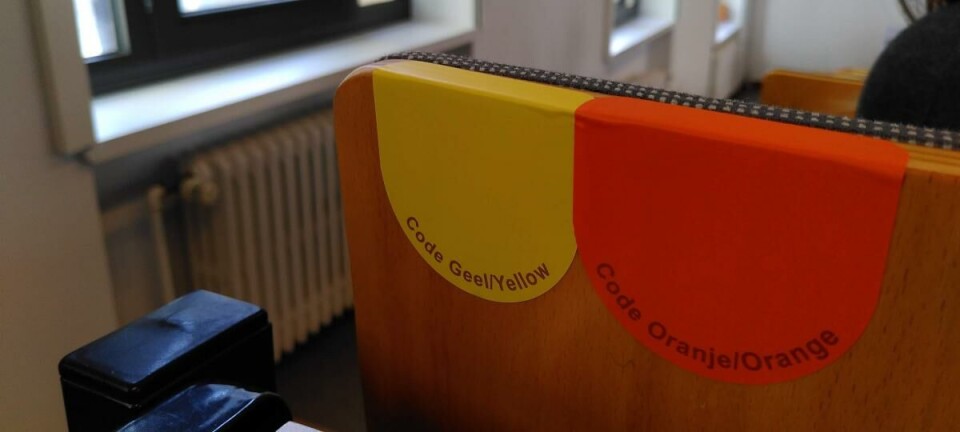article> Policy changes differ for the Brussels campus
No more coloured-seating stickers? Lectures at full capacity possible

The academic year can start with lecture halls at full capacity, the decision was announced yesterday by educational minister Ben Weyts (N-VA). The option to follow classes online will remain possible
Originally written in Dutch for Veto by Tijs Keukeleire
Translated by Alon Nudler
Originally published on 20 August 2021
Minister Ben Weyts met yesterday with representatives from universities, trade schools and the Flemish Student Union. Together they reached an agreement: the upcoming academic year will start without limits on lecture halls, better known among us students as ‘code green’. The agreement however still provides the institutions the right to re-introduce provisions if need be.
KU Leuven is yet to officially announce their plans, largely as rector Luc Sels is currently away. Veto was able to reach out where he informed via SMS that “what the minister has communicated is essentially the model the KU Leuven will seek to follow.” It would indeed seem that in a few weeks we will be allowed to attend lectures in person and with very few restrictions.
One key aspect which is yet to be decided on are the rules regarding facemasks. These rules will be subject to ‘developments in the epidemiological situation’ but also based on the decisions of the consultative committee regarding indoor gatherings.
CO2 detectors
No overarching provisions were taken with regards to CO2 levels. Higher levels of CO2 in lecture halls suggest insufficient ventilation which could lead to COVID spreading more easily. It was decided that these rules be left to the prevention-advisories of the institutions. At the KU Leuven, the department of health, safety and the environment (HSE) will thus be responsible.
This also means that the HSE department can reintroduce seating limits in, for example, lecture halls with inadequate ventilation systems. As such it is unlikely that we will see all coloured stickers disappearing any time soon.
Additionally, the rules described above do not apply to the region of Brussels. The situation there, partially due to a lower percentage of the population receiving their vaccinations, will first be monitored further. As such, the committee saw it unfit to change the rules only for Dutch-speaking institutions in the capital.
‘Where possible’ educational institutions will continue to offer students the ability to follow their lessons online. This is meant in the first place for those students with medical conditions where infection poses a greater risk or those who feel uncomfortable returning to physical lessons.





